Neil DeGrasse Tyson Shows Why Science Can’t Build a Utopia
by Trent Horn
Filed under New Atheists, Science
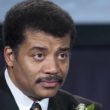
Atheist astrophysicist Neil deGrasse Tyson recently tweeted, “Earth needs a virtual country: #Rationalia, with a one-line Constitution: All policy shall be based on the weight of evidence.” I did my best in 140 characters to show how this sentiment is the exact of opposite of profound. I said, “@neiltyson ‘Rationalia’ is as useless as ‘Correctistan,’ or a country whose constitution says, 'Always make the correct decisions.'" Obviously, public policy should rationally consider... Read More
Was Mother Teresa Really an Atheist?
by Stephen Bullivant
Filed under Atheism, Saints

As is now well known, Mother Teresa of Calcutta suffered severe spiritual afflictions through much of her remarkable life: “This terrible sense of loss – this untold darkness – this loneliness – this continual longing for God.” These first emerged in 2001, but were only fully disclosed with the 2007 publication of her private writings and correspondence in Come Be My Light, edited by Fr Brian Kolodiejchuk MC, the postulator of her cause for canonization. In these writings, Teresa... Read More
Sean Carroll, Determinism, and Laplace’s Demon
by Brandon Vogt
Filed under Atheism, Christianity and Science, Cosmology

Today we continue our series looking at physicist Sean Carroll's new book, The Big Picture: On the Origins of Life, Meaning, and the Universe Itself (Dutton, 2016). After exploring whether the universe needed a cause to get started, Carroll next turns to the topic of determinism: is reality determined or free? Laplace's Demon Carroll's answer relies on a famous thought-experiment involving "Laplace's Demon". Pierre-Simon Laplace was an accomplished French physicist and mathematician.... Read More
Is Sean Carroll Correct That the Universe Moves By Itself?
by Brandon Vogt
Filed under Atheism, Christianity and Science, Cosmology
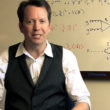
Many theists, including myself, believe that some of the strongest arguments for God rely on the logical need for a First Cause of the universe (or First Mover, depending on which argument you use.) This sort of argument goes back at least to Aristotle, who thousands of years ago suggested that, "Everything that is in motion must be moved by something" (and by motion he meant any change whatsoever, not just locomotion, or spatial change). However, physicist Sean Carroll thinks Aristotle... Read More
The Big Problem with Sean Carroll’s “Poetic Naturalism”
by Brandon Vogt
Filed under Atheism, Christianity and Science, Cosmology
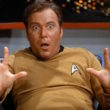
Today we continue our look at Sean Carroll's anticipated new book,The Big Picture: On the Origins of Life, Meaning, and the Universe Itself (Dutton, 2016). Carroll starts his book by diving right into the deep end. The first chapter in the first section concerns a huge topic: the fundamental nature of reality. Carroll explains that philosophers consider this the domain of ontology, but then he offers a strange definition. Ontology, he says, is "the study of the basic structure of the... Read More
Why Sean Carroll’s “The Big Picture” Is Too Small
by Brandon Vogt
Filed under Atheism, Christianity and Science, Cosmology
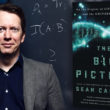
Physicist Sean Carroll has a high reputation in the scientific and atheist communities, and it's well-deserved. He's produced several acclaimed books on the philosophy of time, the Higgs Boson particle, and general relatively. But none of his past books has been as daring or sweeping as his latest project, The Big Picture: On the Origins of Life, Meaning, and the Universe Itself (Dutton, 2016). One reviewer for Nature began by stating, "I don't think I have ever read anything with... Read More
Answering Stephen Colbert’s Favorite Atheist Physicist
by Trent Horn
Filed under Atheism, Christianity and Science, Cosmology
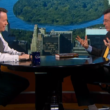
In a book that was released a few days ago, Sean Carroll, theoretical physicist, critic of religion, and former guest of The Colbert Report, presents what he calls The Big Picture. Neil deGrasse Tyson says the book “weav[es] the threads of astronomy, physics, chemistry, biology, and philosophy into a seamless narrative tapestry. Sean Carroll enthralls us with what we’ve figured out in the universe and humbles us with what we don’t yet understand. Yet in the end, it’s the meaning... Read More
Why Richard Dawkins Was Simply Wrong in His “Reason Rally” Speech
by Trent Horn
Filed under New Atheists
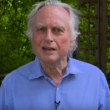
On June 4, a few thousand atheists gathered at the Lincoln Memorial in Washington, D.C., for an event they dubbed the “Reason Rally.” Due to health reasons, Richard Dawkins could not be there in person to address the audience, but he did send a video message, the transcript of which has been passed around via atheist blogs. In it, Dawkins highlights how atheists are mistreated in the U.S., especially when religious people ask them the incredibly insensitive question “What... Read More
Atheism, Prot-Enlight, and the Schizophrenic Republic
by Timothy Gordon
Filed under Atheism, Natural Law

Last week, I wrote about the longstanding Catholic drive to reinterpret the philosophy of Plato as realist. In actuality, Aristotle’s philosophy perfected Plato’s by connecting the material to the formal world—two separated domains which, in Plato, remain wholly alien to one another. Accordingly, it is quite a “stretcher,” I suggested, when Catholics talk about Plato as a realist. Any philosophy which divorces the material and the formal qualifies as anti-realism, because matter’s... Read More
Modern Atheism: Dragging Plato Along Aristotle’s Coattails
by Timothy Gordon
Filed under Atheism
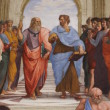
In today's Catholic Church, Platonism and Aristotelianism are often considered equal. It is a dangerous error that hails all the way back to the first neo-Platonists in the third century. Simply put, the true description of reality, rightly recognized by the Catholic Church, is that account given by Aristotle (not Plato!) and confirmed by Thomas Aquinas. But too many Catholics speak of Plato and Aristotle together, as if their metaphysics are identical. They are in fact nowhere near this.... Read More






